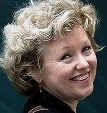By Caitlin Rother
Being invited to participate in the Los Angeles Times
Festival of Books this past weekend to discuss my latest book, LOST GIRLS, was a great honor for me, a personal and
professional milestone as well as an opportunity to see and hear some of my
favorite authors speak on various panels.
Books have always been a part of my life. Ever since I was a
little girl I have been a voracious reader, riding my bike home from the
library with the straps of my little canvas backpack digging into my shoulders
from the weight of a stack of hardcovers. I kept a checklist too, so that when
I finished each one I could check it off. Mission
accomplished.
Growing up, I read stories about magic gardens, fantasy and all
those classics about times gone past. Later, I went into the darkness: neurotic
women, dangerous men, medical mysteries, forensics and murder. I spent many late
nights turning pages, with characters taking me on trips into the beyond and
detectives solving puzzles. Escaping.
Sometimes it was about the writing, or studying the craft,
or learning the formula or searching for inspiration. But for as long as I can
remember, it was a goal and a dream of mine to have a book published. The
authors I chose – sometimes reading most every book they wrote – were my role models.
They represented what I wanted to be. And that hasn’t changed.
Last week, I was thrilled and humbled to join them on those
stages, and yet I was also at the festival as a fan, listening and learning.
Watching and taking it all in. Overwhelmed by all the information they imparted
and seeing that they were real people too, eating soup and salad at the next table in the Green
Room.
Many of them still are who and where I want to be someday,
so I took notes on things they said, things I could do to emulate them, and to
pass on to you folks here on the blog. Here are a few tips I want to share, some of which I already
do and some I aspire to myself:
- Some of these authors said they write every day, whether it’s 500 or 1,000 words, or more if they are on a roll. Sometimes they just do what they can, or when they are in the zone, they simply go until they run out of steam.
- Sit your butt in the chair or at your desk and don’t get up until you do get those words down, even if it’s just a writing exercise you give yourself to break through the blocks.
- If you run into a block or feel yourself fading or stuck, switch gears, pick up another project or task. Just. Keep. Going.
- Keep in mind that even the best authors experience rejection (with the exception of one of my favorites -- Ann Patchett, who I’ve heard say had her very first short story AND first novel both accepted on first try by a reputable literary journal and publisher, respectively.)
- To keep your name out there and to maintain and expand your platform, write short stories, essays and op-ed pieces in addition to a continuous stream of books. (This is where I started wondering, when do these people sleep?)
- Don’t focus on the book that’s about to come out. You’ve already finished that one. Always be thinking about and working on the next one. Keep the momentum going. (I do recommend taking a break in between, though, because too many books written too fast can drain your creative juices.)
- Stay up to date on changes in the publishing industry. It is changing faster than you can say “New York Times bestseller.” Start thinking “singles,” i.e. 30,000 word pieces published online.
- When you get rejected, get the hell up and back at it. (I’m well acquainted with that one.) To me, persistence and rebounding are the two keys to getting published and staying published.
- Don’t expect that once you write your book that your job is finished, that it will sell itself. If you aren’t big enough for your publisher to send you on a book tour (most of us aren’t), then get to work months in advance to come up with a promotions plan of your own.
- Seriously, and above all, don’t expect to get rich. Books, for the most part, don’t pay much, so you’d better really love the journey, the writing and the writing life. And feel like you couldn’t live without it. And be sure to enjoy the occasional highs and joyous surprises, as I just did, of getting your panel discussion televised live on C-SPAN. Sometimes they come when you least expect it.












